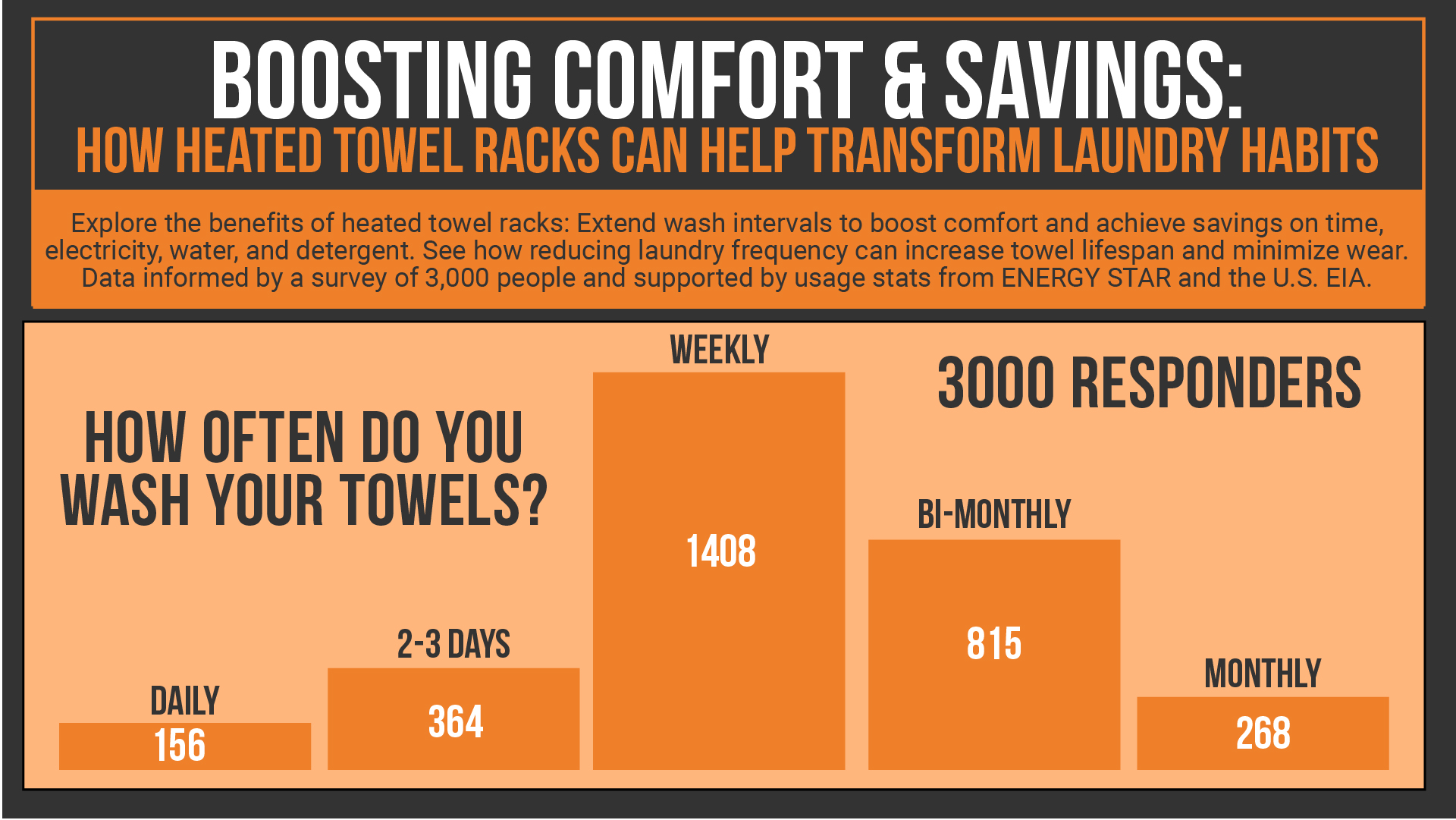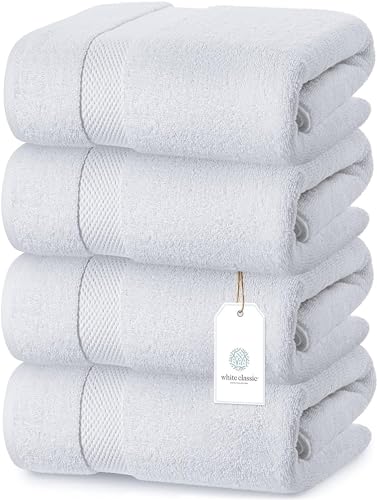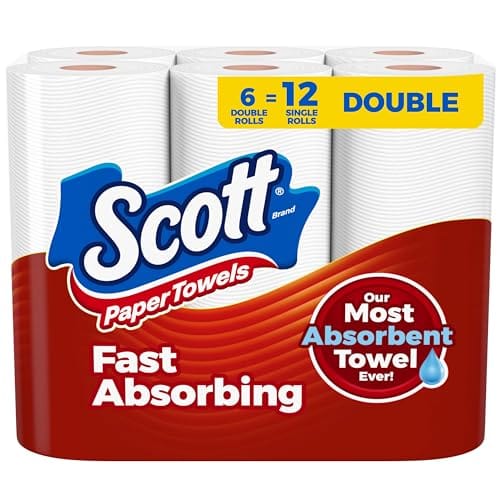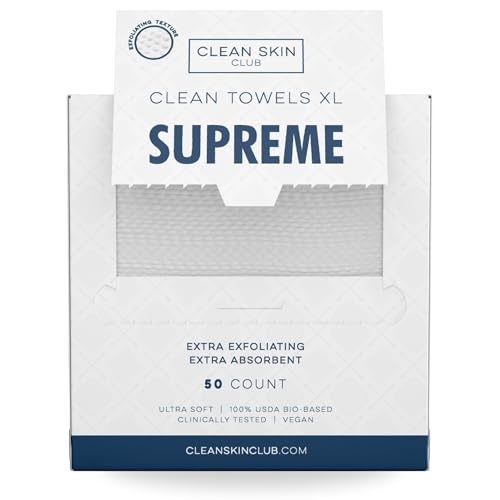To extend towel lifespan, wash them in cold water and avoid using fabric softeners. Dry them on low heat or air dry.
Towels are a daily essential, often overlooked in terms of care. Proper maintenance can significantly extend their lifespan, saving money and reducing waste. Regular washing in cold water helps maintain the fabric’s integrity and color. Avoiding fabric softeners prevents residue buildup that can decrease absorbency.
Drying on low heat or air drying minimizes fabric wear and tear. By following these simple steps, you can keep your towels soft, absorbent, and durable for much longer. Investing a little time in proper towel care can lead to long-term benefits, ensuring that you always have fresh, fluffy towels on hand.
Choosing Quality Towels
Extending the lifespan of your towels starts with choosing the right ones. Quality towels are not just about luxury; they save you money and reduce waste. This guide will help you understand what to look for when selecting towels to ensure they last longer.
Material Matters
Choosing the right material is crucial for towel durability. Cotton is the most popular choice due to its softness and absorbency. Egyptian cotton is known for its high quality and long fibers, making it more durable.
Here are some common towel materials and their benefits:
- Egyptian Cotton: Luxurious and highly absorbent.
- Turkish Cotton: Soft and quick-drying.
- Pima Cotton: Durable and absorbent.
- Bamboo: Eco-friendly and naturally antibacterial.
Each material has its pros and cons. For example, Egyptian cotton is very soft but can be more expensive. Turkish cotton dries quickly but may not be as soft. Understanding these differences helps you choose the best towel for your needs.
Here’s a quick comparison:
| Material | Softness | Absorbency | Durability |
|---|---|---|---|
| Egyptian Cotton | High | Very High | High |
| Turkish Cotton | Medium | High | Medium |
| Pima Cotton | High | High | High |
| Bamboo | Medium | Medium | Medium |
Thread Count Importance
Thread count refers to the number of threads per square inch of fabric. Higher thread count usually means a softer and more durable towel. A thread count between 400 and 600 is generally considered good for towels.
A high thread count means more threads are woven together. This makes the towel thicker and more absorbent. But, very high thread counts can make towels take longer to dry.
Here are some key points to consider:
- Low Thread Count: Less than 400, usually less absorbent and less durable.
- Medium Thread Count: Between 400 and 600, a good balance of softness and durability.
- High Thread Count: Over 600, very soft and plush but may dry slowly.
Choosing the right thread count can make a big difference. It affects how the towel feels and how long it lasts. Always check the thread count before buying new towels.
Proper Washing Techniques
Taking care of your towels can make them last longer and stay soft. Proper washing techniques are crucial to keep towels in top condition. By following the right methods, you can extend your towels’ lifespan and enjoy their fluffiness for many years.
Water Temperature Tips
Choosing the right water temperature is essential for washing towels. Here are some key tips:
- Warm water is best for most towels. It helps remove dirt and oils.
- Hot water can be used for white towels. It helps kill germs and bacteria.
- Cold water is suitable for delicate towels. It prevents fading and shrinking.
Always check the care label on your towels. This will tell you the best water temperature to use. Mixing towels with other laundry can affect the water temperature. Wash towels separately to maintain the right conditions.
Using the correct water temperature can keep towels clean and fresh. This simple step can significantly extend their lifespan.
Detergent Selection
Selecting the right detergent is just as important as the water temperature. Here are some tips:
- Use a mild detergent. Harsh chemicals can damage towel fibers.
- Avoid using fabric softeners. They can leave residue on towels and reduce absorbency.
- Consider using a detergent with enzymes. These help break down stains and oils.
Here is a table summarizing the best detergent choices:
| Type of Detergent | Benefits |
|---|---|
| Mild Detergent | Protects towel fibers |
| Enzyme Detergent | Breaks down stains |
| No Fabric Softener | Maintains absorbency |
Using the right detergent can make a huge difference. It helps keep towels soft and absorbent for a long time.
Drying Practices
Drying practices play a crucial role in extending the lifespan of your towels. Proper drying techniques ensure that towels remain soft, fluffy, and absorbent. This guide will explore effective drying methods to keep your towels in top condition for a longer time.
Air Drying Benefits
Air drying is a simple and effective method to extend towel lifespan. It helps maintain the towel’s fibers and reduces wear and tear. Here are some key benefits:
- Preserves fabric quality: Air drying prevents the fibers from breaking down.
- Energy-efficient: No electricity is needed, making it eco-friendly.
- Reduces shrinkage: Towels retain their original size and shape.
- Less lint: Air drying minimizes lint formation on the surface.
To air dry towels effectively, follow these steps:
- Shake out the towel to fluff the fibers.
- Hang the towel in a well-ventilated area.
- Ensure the towel is spread out to avoid mildew.
- Rotate the towel occasionally for even drying.
Avoiding High Heat
High heat can damage towels and shorten their lifespan. Overheating can cause the fibers to become brittle and rough. Here are some tips to avoid high heat:
- Use low heat settings: Always select the lowest heat setting on your dryer.
- Remove towels promptly: Take towels out of the dryer as soon as they are dry.
- Avoid over-drying: Over-drying can lead to fiber damage and shrinkage.
Consider using a drying rack or clothesline to avoid high heat altogether. If using a dryer, opt for the air-dry or tumble-dry low settings. These methods help maintain towel quality and extend their usable life.

Storage Solutions
Extending the lifespan of your towels not only saves money but also helps the environment. Proper storage solutions play a crucial role in maintaining towel quality. Simple changes in how you store towels can make them last longer and stay fresh.
Folding Techniques
Folding towels correctly can prevent wear and tear. Proper folding keeps towels in good shape and makes storage easier. Here are some effective techniques:
- Square Fold: Fold the towel in half, then in half again. Finally, fold it into a square.
- Rectangle Fold: Fold the towel in thirds lengthwise. Then, fold it in half or into thirds.
- Roll Method: Lay the towel flat. Fold it in half lengthwise, then roll it up tightly.
These methods save space and reduce fabric stress. Proper folding also ensures that towels dry faster after use. This helps to prevent mold and mildew. Below is a simple table for quick reference:
| Folding Method | Steps |
|---|---|
| Square Fold | Fold in half twice, then into a square. |
| Rectangle Fold | Fold in thirds lengthwise, then in half or thirds. |
| Roll Method | Fold in half lengthwise, then roll up tightly. |
Moisture Control
Moisture is the enemy of towel longevity. Keeping towels dry is essential for extending their lifespan. Here are some tips:
- Use a Towel Rack: Hang towels on a rack instead of hooks. This allows air to circulate and dry the towel faster.
- Ensure Proper Ventilation: Keep the bathroom well-ventilated. Use exhaust fans or open windows to reduce moisture levels.
- Avoid Damp Storage: Never store towels when they are damp. This can cause mold and bad odors.
Regular washing also helps to keep towels fresh. Use warm water and avoid fabric softeners. Fabric softeners can reduce towel absorbency over time. Dry towels thoroughly before folding and storing them.
Using silica gel packets or moisture-absorbing products in your linen closet can also help. These products absorb excess moisture and keep towels dry. By controlling moisture, you can significantly extend the lifespan of your towels.
Avoiding Fabric Softeners
Extending the lifespan of your towels can save money and reduce waste. One key tip is to avoid using fabric softeners. These common laundry additives can actually harm your towels in the long run. Learn how to keep your towels fluffy and absorbent by steering clear of fabric softeners.
Impact On Absorbency
Fabric softeners create a coating on towel fibers. This coating makes them feel soft but reduces their ability to absorb water. Over time, this coating builds up, making your towels less effective. Here are the key impacts:
- Reduced Absorbency: Towels can’t soak up water as well.
- Build-up of Residue: Coating traps dirt and oils in the fibers.
- Shortened Lifespan: Towels wear out faster.
Using fabric softeners can lead to a cycle of washing more frequently. This increases wear and tear on your towels. The fibers break down faster, leading to frayed edges and thin spots. In the end, you may need to replace your towels sooner.
Natural Alternatives
There are many natural alternatives to fabric softeners. These methods can keep your towels soft without harming their absorbency. Consider these options:
| Alternative | Benefits |
|---|---|
| White Vinegar | Removes residue and softens fibers. |
| Baking Soda | Neutralizes odors and boosts cleaning power. |
| Wool Dryer Balls | Fluff towels and reduce drying time. |
Adding a cup of white vinegar to the rinse cycle can make towels soft. It also removes any detergent build-up. Baking soda helps in the wash cycle to make towels fluffy and clean.
Using wool dryer balls can help reduce drying time. They also help fluff up the towels. These methods are simple and effective. They ensure your towels stay absorbent and last longer.
Regular Maintenance
Proper care and regular maintenance can significantly extend the lifespan of your towels. By following a few simple steps, you can keep your towels looking fresh and feeling soft for a long time. Regular maintenance involves both inspecting for damage and making repairs when necessary.
Inspecting For Damage
Regularly checking your towels for damage is crucial. Small tears and loose threads can turn into big problems if ignored. Inspect your towels every few weeks to catch any issues early.
Here are a few things to look for:
- Frayed edges: Check the edges of your towels for fraying. This is a common issue that can get worse over time.
- Loose threads: Look for any loose threads. These can unravel and cause larger holes.
- Discoloration: Notice any changes in color. This can be a sign of wear and tear.
- Thin spots: Feel for any thin spots in the fabric. These areas are more likely to tear.
If you find any of these issues, take action right away. This will help prevent further damage and extend the life of your towels.
Repairing Over Replacing
Repairing your towels is often a better option than replacing them. Simple repairs can make your towels last much longer.
Here are some easy repair tips:
- Sewing loose threads: Use a needle and thread to sew up any loose threads. This will prevent further unraveling.
- Mending small tears: Use a patch or some fabric glue to fix small tears. This can save you from buying new towels.
- Reinforcing edges: Sew along the edges to reinforce them. This can help prevent fraying.
Repairing your towels also saves you money. Instead of buying new towels, you can spend a little time fixing the ones you have. This is better for the environment too. Fewer towels thrown away means less waste.
By taking these simple steps, you can keep your towels in good condition for years. Regular maintenance and timely repairs are key to extending the lifespan of your towels.
Frequency Of Use
Extending the lifespan of your towels saves money and keeps them soft. Frequency of use plays a big role in how long your towels last. By following some simple tips, you can make your towels last longer and stay fresh.
Rotating Towels
Rotating your towels helps them last longer. By using different towels each day, you reduce the wear and tear on each one. This simple habit keeps all your towels in better shape.
Here are some tips to rotate your towels effectively:
- Have at least three sets of towels.
- Use one set for a week, then switch to another set.
- Wash and store the used set properly.
A simple rotation schedule might look like this:
| Week | Towel Set |
|---|---|
| 1 | Set A |
| 2 | Set B |
| 3 | Set C |
| 4 | Set A |
By following this schedule, your towels get more rest between uses. This helps them stay soft and last longer.
Setting A Schedule
Setting a washing schedule is key to extending towel lifespan. Washing towels too often can wear them out quickly. On the other hand, not washing them enough can make them smell and wear out faster.
Here are some tips for a good washing schedule:
- Wash bath towels every 3 to 4 uses.
- Wash hand towels every 2 to 3 days.
- Use a gentle detergent and avoid bleach.
Creating a washing schedule might look like this:
| Day | Task |
|---|---|
| Monday | Wash hand towels |
| Wednesday | Wash bath towels |
| Friday | Wash hand towels |
| Sunday | Wash bath towels |
This schedule keeps your towels clean and fresh. By following it, you ensure that your towels get washed at the right times. This helps them last longer and stay soft.

Diy Refreshing Methods
Everyone loves the feeling of a fresh, fluffy towel. But towels can lose their softness over time. The good news is, you can make your towels last longer with some simple DIY methods. This guide will show you how to refresh your towels using common household items.
Vinegar Rinse
Using vinegar to rinse your towels can bring them back to life. Vinegar helps remove soap residue and fabric softener buildup. This will make your towels softer and more absorbent. Follow these steps to do a vinegar rinse:
- Fill your washing machine with hot water.
- Add one cup of white vinegar.
- Place your towels in the washing machine.
- Run the wash cycle as usual.
After the wash cycle, dry your towels completely. You will notice they feel softer and fluffier. It’s important to avoid using vinegar too often. Once every few months should be enough. This method can also help remove musty odors from your towels.
Baking Soda Boost
Baking soda is another great way to refresh your towels. It helps to remove odors and restore softness. Here’s how you can use baking soda to boost your towels:
- Fill your washing machine with hot water.
- Add half a cup of baking soda.
- Place your towels in the washing machine.
- Run a regular wash cycle.
After the wash, make sure to dry the towels completely. You can use this method along with the vinegar rinse. For best results, alternate between vinegar and baking soda. This will ensure your towels remain fresh and soft for a long time.

Frequently Asked Questions
How Often Should You Wash Towels?
Wash towels after 3-4 uses to maintain freshness. Frequent washing helps remove bacteria and extends their lifespan.
What Temperature To Wash Towels?
Wash towels in warm water to kill bacteria and remove dirt. Avoid high temperatures to prevent fabric damage.
How To Dry Towels Properly?
Dry towels in a well-ventilated area or use a low-heat dryer setting. Avoid direct sunlight to prevent fading.
Can Fabric Softener Damage Towels?
Yes, fabric softeners can reduce towel absorbency. Use vinegar instead to maintain softness and longevity.
Conclusion
Extending your towel’s lifespan is simple with proper care. Wash them correctly and avoid harsh chemicals. Store towels in a dry, ventilated space. Rotate usage to prevent wear and tear. By following these tips, your towels will stay soft, absorbent, and last longer, saving you money and time.



